![Articles: Secret Music]()
"Cassettes are currently the simplest and most artistically pure way of sharing sound," wrote journalist Neil Strauss in Cassette Mythos, a cult classic of an anthology on homemade tape culture. The book, published in 1990, traced the roots of the medium in experimental and outsider music, emphasizing the format's accessibility. One would only need blank tapes, cassette decks, envelopes, and stamps to particpate in what Strauss then called "a perfect environment for an underground to develop."
Flash forward 23 years and not so much has changed. In the underground, the sentiment still rings true. Cassettes continue on as a medium of choice among noise artists, punks, and fringe experimentalists. The roots of the cassette world subvert a need for the greater music industry, and often rule out the necessity for any monetary exchange in music at all. Trading is a longstanding element to tape culture. Tape labels and roving mini tape distros remain at the heart of what makes underground cassette culture cohesive, alive, and exciting.
But the recent past has seen higher-profile bands take newfound interest in tapes, as the roster for today's "Cassette Store Day" proves. Much like the annual Record Store Day tradition, this day is a loosely-organized international effort, with shops around the world hosting events and various labels issuing limited edition tapes. Some of these tapes are coming from massive bands like Flaming Lips, Animal Collective, and Haim, but the event was conceptualized by three labels in the UK functioning on much smaller scales-- Sexbeat, Kissability, and Supplex.
"It's a celebration for people who already love cassettes," says organizer Jen Long, a BBC radio DJ who runs Kissability. One of her partners thought up CSD in April. "He was like, 'I had this stupid idea this weekend," Long said, "and I was like, Yeah, that sounds really funny." The idea was to set up "a day we could spend hanging out, drinking some cans of beer, and selling some tapes," a fun, small-scale affair for UK labels at the Rough Trade store in London. It took on a different life after Bella Union proposed the Flaming Lips tape. Soon the organizers saw potential for bigger labels to get involved and reached out. "It's gotten a bit mental," Long admits with a laugh.
In New York, Mirror Universe Tapes and GODMODE Records (run by Pitchfork contributor Nick Sylvester) are presenting a tape fair at Brooklyn's Silent Barn. At Oma333 in Stochkolm, a tape-only market will include five live tape-only DJs playing music from their personal collections. Rizzo Manufacture Studio in Palermo, Italy will host a vintage cassette exhibition. Bridgetown DIY in La Puente, Calif., will host a day of cassette trading.
A second goal of Cassette Store Day, Long explains, is to raise awareness that cassettes are still a viable format with sizable audiences that take tape labels seriously. "It's about giving labels more of a platform and a little more authority," she said. "Tape labels are real labels. You are putting out releases with download codes and on iTunes. It's still a legitimate label."
The intention is no doubt admirable, but does raise some questions-- what makes a label "serious" or "real"? Does a day of consumption "legitimize" the cassette medium? Is the amateur nature of cassettes part of their charm? Moreover, do cassettes need to be taken seriously by anyone other than the audiences they naturally attract? We explored these topics and lots more with nine tape labels tied to underground, experimental, and DIY culture-- many with overlapping rosters-- discussing this event and also taking part in the celebration by highlighting an even more expansive view of cassette culture than CSD offers.
![]()
Ascetic House [Tempe, Ariz.]
Ukiah Drag: "Nina Came Knockin'" on SoundCloud.
"There are a lot of mistakes to be made, and Ascetic House will exist until we make them all," said Jes Aurelius, guitarist in desert-punk group Destruction Unit and prolific contributor to this experimental Tempe, Ariz.,-based artists circle. Active about five years, Ascetic House has released philosophical pamphlets (many penned by Aurelius while living alone in a shed), psychedelic chapbooks, and around 50 cassettes. The tapes have featured Tempe artists, including Marshstepper, the provocative performance art group, while also tying together some of the most exciting segments of contemporary D.I.Y. music culture throughout America and beyond-- New York noise act Foreplay's Vicarious and bluesy Boston post-punk act Ukiah Drag's Jazz Mama Is Cryin' are recommended.
According to the Ascetic House website, cassettes from Iceage and Lust for Youth are in the works, as are zines from Pharmakon and Nü Sensae singer Andrea Lukic, while an art zine from Carson Cox of Merchandise was released earlier this year. Ascetic House's own visual aesthetic of occultish elegance and repurposed biblical imagery has also been rather crucial to its appeal. "Without mystery, there is little room for imagination, and imagination is the only thing saving free minds in an age where most are trying to kill them off,” Aurelius said, and continued to quote the French poet Stephane Mallarmé: "Everything that is sacred and that wishes to remain so must envelope itself in mystery."
Tapes came to dominate Ascetic House's growing discography because they have the quickest turnaround time and are cheapest to produce. According to Aurelius, an Ascetic House tape is generally available within a day or two of being recorded. Despite the group's growing focus on tapes, Aurelis says he has "no real desire to be part of a 'cassette culture.'" "While the format is important to some extent, it's probably the least important aspect of the release in my mind," he said. That's an unsurprising statement considering Aurelius' seemingly anti-capitalist worldview; earlier this year, Ascetic House established a Prisoner Outreach Program wherein they'll send any cassette release to any incarcerated person in the U.S. for free. "The only artists making money are con-artists, and while we may have some shark blood in us, we are definitely not making any money," Aurelius said. "In fact, I'd say the slowest and most painful suicide is committing to life as an artist."
![]()
Burger Records [Fullerton, Calif.]
Burger Records began in 2007 when Lee Rickard and Sean Bohrman, based in Fullerton, Calif., couldn't find a label to release their power pop band, Thee Makeout Party. "On tour in Kansas, we were in front of a beer store sitting in the van and I thought, we should release cassettes for more records that aren't out on tape, Nobunny and the Go and the Traditional Fools," Bohrman said. "I immediately got on the computer and started emailing people."
Since that defintive moment, Burger's tiny idea has grown into one of the biggest cassette-making operations in the world-- over 500 affiliated bands and 622 tapes from scrappy indie pop and garage rock to limited editions of classic albums by the likes of Television Personalities and Velvet Underground. The first hundred releases included Hunx and His Punx, Shannon and the Clams, Black Lips, and Ty Segall, bands that have helped define something of a garage rock "Burger" sound despite the label's broad, nonstop approach.
Put in the order Sunday, pick it up Thursday night; this has been Burger's routine for three years now. Through trial and error, they grew to their current position of releasing three to five tapes per week. "Sometimes more," Bohrman said. "This week we released nine. The guy who duplicates our stuff in Pasadena is like our fifth Beatle." Throughout our interview, Bohrman mentions several times that his favorite label is Gnar Tapes in Portland, Ore.
Along with working closely with labels like Slumberland, Captured Tracks, and Hardly Art to issue cassette versions of LPs, Burger also owns a shop in Pasadena, where they sell hundreds of their own releases and other used tapes and vinyl. When I visited in May, the shop-- located in the middle of a suburban strip mall-- felt legitimately like stepping back into the 90s. As I walked through the back of the store towards the bathroom, I climbed past a group of teenagers sitting around in the back watching VHS tapes and helping with mail orders, walls collaged by Burger posters, a cat wandering about.
All money generated by the label goes straight back in. Bohrman says he and his business partner "live meagerly, shower when we can, live on our couches, work all the time." Despite the hours-- Borhman sleeps everyday from 4 a.m. to 11 a.m.-- he's ecstatically positive about Burger. “Doing this is the high point of every single one of my days," he said. "I’m proud of what we’ve accomplished with limited means. Every time I go to bed, I cant wait to wake up and start working again."
![]()
Chondritic Sound [Los Angeles, Calif.]
Believer/Law: "War Story" on SoundCloud.
Before New York noise artist Pharmakonreleased her recent LP, one of her only available releases was a tape of power electronics from Chondritic Sound, an L.A. label that's existed for over 10 years. Run by Greh Holger, who plays in Pure Ground and Believer/Law and works at the shop Vacation Vinyl, the label releases experimental electronic, bleak minimal wave, industrial, and nihilist synth pop-- all of which sounds like it's been cranked through a droning noise filter. Holger, an encyclopedia of tape knowledge, cites contemporary labels like Hospital and Hanson as influential, in addition to classics like Nekrophile, Slaughter Productions, and LOKI Foundation. His personal tape collection comprises about 2,500 titles.
"I'd like to think the releases are timeless," said Holger, who also handles artwork for each tape. "As fresh now as they will be in 20 years." Despite the label's sinister sonic aesthetic, Holger comes off as optimistic in our email correspondences. "Everyday is a high point," Holger writes. "Seeing [tapes] assembled and all lined up is always a source of joy." He previously ran the label out of his former home in Detroit, where he lived until 2010.
Tapes are not fragile like records or CDs, Holger explains, but even when they're damaged or saturated they sound cool. ("Leave one on the floor of your car for a month next to a record or CD and see which one is still listenable at the end," he said.) You can also give them "a second life" by recording over something that sounds bad. "People tend to complain about the sound quality and inconvenience of cassettes as if everything needs to be streaming in HD these days," Holger said. "Not everything should have a download code or website devoted to it. People are too dependent on their conveniences."
![]()
Hooker Vision [Winterville, Ga.]
Cliffsides: Spirit in the Mountain Temple [Excerpts] on SoundCloud.
Hooker Vision, which releases ambient, droning electronic music, was founded in 2008 by musician Grant Evans; he was soon joined by his wife Rachel, who records as Motion Sickness of Time Travel. (They've also released music on Digitalis and Spectrum Spools.) Hooker Vision's focus lies in "personal/private music" with a diaristic approach. "These are special releases, usually created by individuals in their homes, assembled and released from our home, and hopefully enjoyed by a listener in his or her home," Grant said. "They're fleeting glimpes into the private lives of the artist." Grant and Rachel assemble collage art for each tape in hopes of conjuring a human, homemade feel.
Grant prefers tapes for their tactility, portability, durability, and hiss, and says Hooker Vision was inspired by labels like Peasant Magik and Hanson. "I'm not sure if I consider all tapes to be art objects," he said. "They function as living relics." Foremost, tapes are about practicality for Hooker Vision-- cheap with ability to playback over 60 minutes per side. Grant recently launched a new label, VAALD, to focus on darker sound, like "the more traditional noise labels that got us into tape music in the first place," he said. He also recommends the labels Housecraft, Diatom Bath, and Tranquility Tapes.
Given Hooker Vision's small-scale approach, I'm unsurpised to learn that Grant is critical of the bigger Cassette Store Day offerings. "I thought it was a joke at first. Maybe it really is," he said. "As more people become interested in cassette culture, a lot of the things that originally got us interested are being lost. I don’t see the point in releasing At the Drive-In and Flaming Lips cassettes today other than as a desperate marketing ploy... The labels doing the best work are still the ones lurking just under the mainstream’s radar."
![]()
Night-People [Minneapolis, Minn.]
Fancy Books: "Sponge Boy" on SoundCloud.
Night-People, which has existed since 2004, is one of the best tape labels in the world-- ask anyone. With nearly 200 tapes and a singular silkscreened aesthetic, founder Shawn Reed's many releases have included early tapes by EMA, Dirty Beaches, and Peaking Lights, and tons of lesser-known treasures; this year, he released tapes from members of Merchandise and a 12" LP by the band. The label began as Reed was winding down a graduate art school program and exhibiting throughout the gallery world. He saw Night-People as a way to fuse his interests in visual art and underground music (he'd been a member of Raccoo-oo-oon and now plays in Wet Hair) and has worked on the label full-time since 2007. While Reed was motivated by labels like American Tapes, he primarily credits the power of mixtapes. "There were times I had tapes given to me, or I passed on tapes, and lives were changed," Reed said.
Starting as a cassette-oriented label fit Reed's financial means and D.I.Y. spirit-- ingrained growing up in small-town, rural Iowa, where it was necessary to imagine and create your own grassroots music culture. Reed and comrades came from working-class backgrounds. "I wanted to live prolific, see the world, make art, make music, really feel all of it, chase the spirit and ride the road no matter where it lead," Reed said. "We wanted bigger horizons, and we had to invent them. The spirit of Night-People came from that."
Early on, Reed drew influence from late 70s/early 80s British D.I.Y. (he mentions Crass), but today his biggest inspiration is the history of reggae and its surrounding culture, which he compares to the tape world. "The production style was pieced together in a loose but amazing way, making records with such limited means," Reed said. "The immediacy of recording, then cutting a lathe to play that night to see if the song would hit or not-- that's beautiful. That is the kind of thing that inspires me to keep going and push it."
That cassettes should be considered complete art objects is obvious to Reed. "If you look at the Night-People discography in tapes, which is almost 200 releases, it looks like one cohesive art piece," he said. He doesn't relate to the idea or aesthetic of digital music and says the speed of contemporary culture is beyond his comprehension. "Culture is so hyper, the experience and process of music is speeding up, and it's hard to fully see where you stand in culture on a bigger level right now," he said. "Obviously, being focused on records, tapes, and handmade visuals, I'm ignoring almost all of it. I just flip the record, keep the dubbers going, sit at my light table working on artwork, and do my thing."
![]()
Sour Tapes [Boston, Mass.]
Tomboy: "I'm in the Fucking Band" on Bandcamp
(Note: we realize this is a distro, not a label.)
Krystina Krysiak sings in the Boston powerviolence trio Curmudgeon and plays guitar in the newly-formed but equally excellent hardcore four-piece Bad Idea. A couple of years ago, Krysiak was running a tape label called We Rise, which led her to open a web store. “I needed a way to trade tapes, since most other DIY labels don't have the cash flow to buy merchandise outright,” she said. “So I would get three or four random tapes at a time and decided to open a webstore. Eventually, I phased out the label (although I'll still release tapes by my own bands) and now I just focus on making demos and other cassette releases easily available.”
Scrolling through the Sour Tapes site, you’ll find demos tapes by Boston hardcore bands like Terminal Crisis and Peacebreakers, the hooky-as-fuck debut demo by feminist punks Tomboy, the Almost Alive tape by Milk Music (now sold out), a Dead Broke Rekerds compilation, a tape by Madrid’s Nueva Autoridad Democrática ("ridiculously catchy & energetic," Krysiak writes on her site) and about a dozen others. Krysiak’s interest in tapes has been mostly practical, as the price of pressing records has risen over the past few years: “I found myself in this sort of ‘adult-punk’ world, where I'm done with school, work at a good job and have disposable income, but want to keep it in punk,” she said. “Tapes are relatively easy and if no one gives a shit, you are only out a few hundred dollars at most. They can be super simple & bare bones or very elaborate, but they still (ideally) will be priced in a way that is accessible to everyone. Plus, tapes can be traded and gifted and thrown in your car or backpack without worrying about destroying or ruining them.”
Krysiak points to labels like Not Normal from Chicago and Eat the Life from Kansas City as some of her favorite. “They are both [run by] people who live and breathe punk and maintain an infectious enthusiasm about the tapes they are releasing and the bands they promote, without trying to get rich or jeopardize their ethics,” she said. “I always think of Sour Tapes as a hobby and not a business, which keeps it fun and not focused on money. If anyone goes into DIY music hoping to make bank, they are going to be sorely disappointed.”
Coming from that sort of perspective, an event like Cassette Store Day isn’t really on Krysiak's radar. “Record Store Day, in its most recent form, is disgusting enough,” she said. “Creating a huge consumer demand for items that are completely manufactured to be rare (and thus, absurdly overpriced) and backing up record plants, putting a huge strain on smaller, independent labels who should be the folks who actually benefit from something like RSD. CSD sounds like an even less authentic, heartless version of this concept. No thanks.”
![]()
OSR Tapes [Brooklyn, N.Y.]
Chris Weisman: "MIT" on SoundCloud.
Zach Phillips, of alien synth pop band Blanche Blanche Blanche, began OSR Tapes in 2007 while working and living among the Brattleboro, Vt., freak scene. He's recently relocated to Brooklyn, but the label's discography still emphasizes the wellspring of D.I.Y. activity coming from that small Vermont town-- the hyper-prolific Brattleboro songwriter Chris Weisman has released tapes, as has Ruth Garbus (sister of tUnE-yArDs). OSR has also handled tapes for Howling Hex (Neil Hagerty, ex-Royal Trux), Robert Scott (the Bats, the Clean), and more.
Phillips says he chose the name "OSR" arbitrarily; the acronym only took on the meaning of "Open Session Rock" later on, after a Blanche tape. But that retroactive process relates to the label's inner-workings. "Certain meanings of the songwriting exercise don't make themselves felt until long after the song is written," Phillips said. "The writer puts herself at the mercy of the work. The forces of intuitive guidance spring from the song at hand, as opposed to attempting to create an aesthetic object that feels like a song, or preemptively attempting to force the hand of what the song is 'about'." In other words, they experiment.
Phillips says he loses money on the label. He shared his favorable opinion of Cassette Store Day: "I'm in favor of anything that helps to distract from the prevailing monoliths," he said, "and brings some attention to those too successful for success!"
![]()
Posh Isolation [Copenhagen, Denmark]
Puce Mary: "Man" on SoundCloud.
From a distance, it can be hard to make sense of the prolific underground punk and noise scene in Copenhagen; new bands surface constantly, with minimal web presences (if any), and most of the material appears on limited run cassette and vinyl. Posh Isolation, a label operated in part by 24-year-old Loke Rahbek of Vår, Lust for Youth, and Damien Dubrovnik, has been a focal point. Active around four and a half years, Rahbek and co-founder Christian Stadsgaard began Posh Isolation to release their own music, soon taking on tapes for friends and likeminded peers, as they continue to do today.
The label makes a point of representing Copenhagen-- tapes in editions as low as 22 from Puce Mary, Age Coin, Flesh Spear, Skullflower, Marching Church, and Iceage, among many others. The aesthetic gears toward noise, punk, and power electronics, but there are no imposed restrictions. "Experience has shown that you can get a long way with gut feeling," Rahbek said. Everything is done by hand, from dubbing and stickering tapes to folding the inserts; no one makes money off it aside from the Danish postal system. "It's not some robot in a factory," he said. "That's D.I.Y., and it translates to the release. I think you can feel it. I can."
Once a week, Rahbek and Stadsgaard open their workspace to the public as a shop for Posh Isolation and a strictly curated selection of industrial, sound art, punk, synth, and metal records, plus zines and books. Despite the inclination towards tapes, Rahbek stresses Posh Isolation is guided by ideas-- sounds, images, words-- not a format. "Cassettes as objects I don't find overtly exciting," he said. "They are good for some things and worthless for others."
Posh Isolation gravitates towards tapes because they're cheap, durable, small, and light, but also because the analog format is befitting of the music they release, which is often challening and requires focus. "The music needs an aware listener, it is not easy listening, it is not 'iPod shuffle' music," Rahbek said, explaining that the full experience requires attention to the tiniest details of the release, down to the colors, lyrics, titles, and even the paper the cover is printed on and how it's folded. "When we mainly focus on dirty analogue sounds, it makes sense that it is presented on a 'dirty and analogue' format."
Rahbek recommends other tape labels including Second Sleep (Italy), Järtecknet (Sweden), Broken Flag (UK), Tour de Garde (Canada), and Dokumentarisk Agenda (Copenhagen).
![]()
Spooky Town [Brattleboro, Vt.]
Quilt: "False Eto" on Bandcamp
In 2008, Peter Nichols of the weirdo psych-pop band Great Valley moved to Boston on a whim, finding himself amid an unexpectedly vibrant underground, stumbling upon experimental psych bands like Prince Rama and Quilt, plus the entire scene surrounding the collective art space Whitehaus. “It seemed ridiculous to me that there wasn't an avenue for experimental pop of such forwardness to reach an audience beyond its hometown,” Nichols said. “The idea all along has been to create a family of like-minded bands, a sort of round table congress of all the bands too campy to be cool and too experimental to be popular… I met more misfit pop bands when we started touring, and it's gone on like that.”
Though the first Spooky Town release was actually vinyl, a Prince Rama/Great Valley split 12”, Nichols soon turned to tapes instead. “Tapes were really a Noise-music-only thing at the time, and the idea of putting song-based music on cassette was pretty foreign, almost scary,” he said. “We didn't know if people would just throw the tape away or what.”
Over the years, Spookytown, which is now based in Brattleboro, Vt., has released cassettes by the prolific Vermont songwriter Chris Weisman, psych-pop wackos Happy Jawbone Family Band, folk-inflicted dream pop trio Quilt, and others. “Originally I would sit around in front of my stereo and copy each tape one by one, 100 copies, which actually isn't as hard as you think,” Nichols said. “I've had much better luck selling tapes than selling vinyl. Who has $15 to spend on an LP by an unknown band? But anyone will drop $5 to try something new.”
Earlier this year, I ordered a Chris Weisman tape from Spookytown, a beautifully minimal collection of warm psych-folk singing. I’d heard a lot about Weisman’s huge catalog from folks around New England, but had to mail order a cassette to hear for myself. It came with a Xeroxed zine-like Spookytown catalog and a handwritten note.
“I've never heard of Cassette Store Day,” Nichols said. “Sounds like it's kinda missing the point. Another main point of the tape scene is cutting the ‘store’ out. Tapes tend to have more of a direct maker-to-listener quality and that's part of their value. A lot of bands trade almost as many tapes as they sell, barter style. Tapes can be ‘calling-cards’ of the DIY music circuit, and most of the exchange doesn't take place in stores, it happens at shows and face-to-face.”












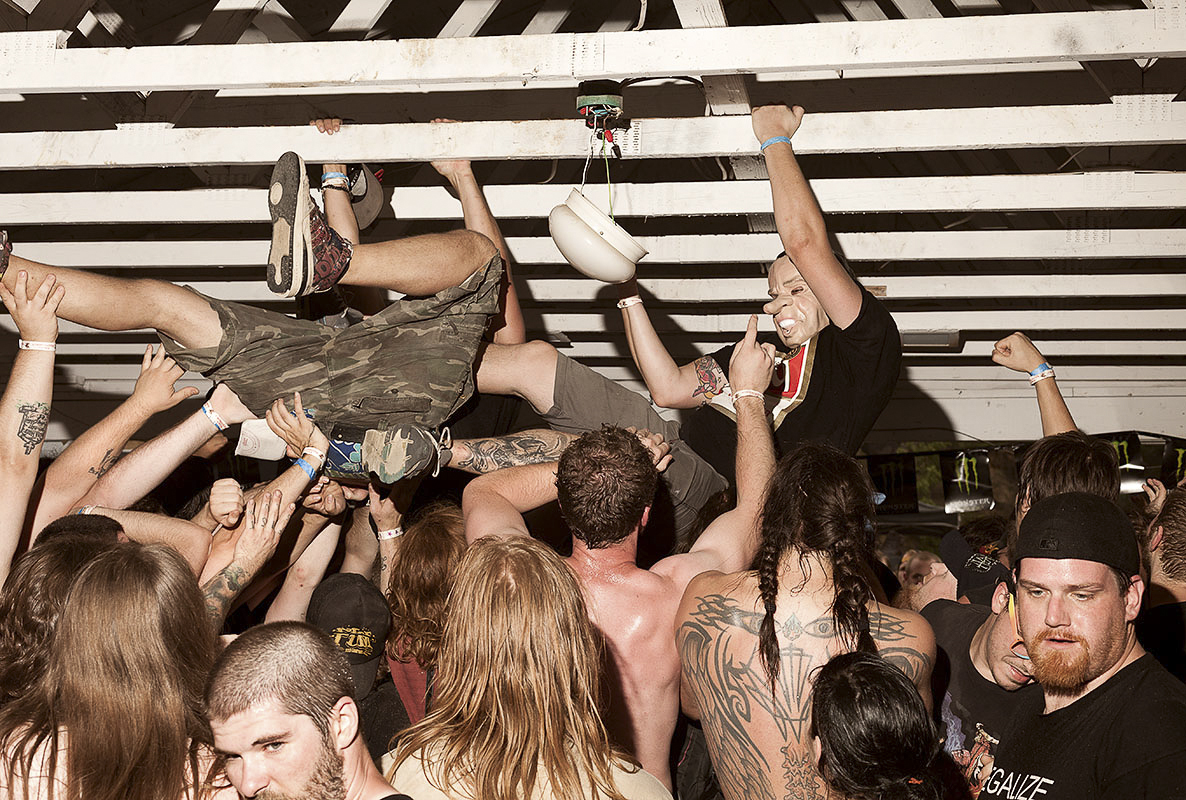
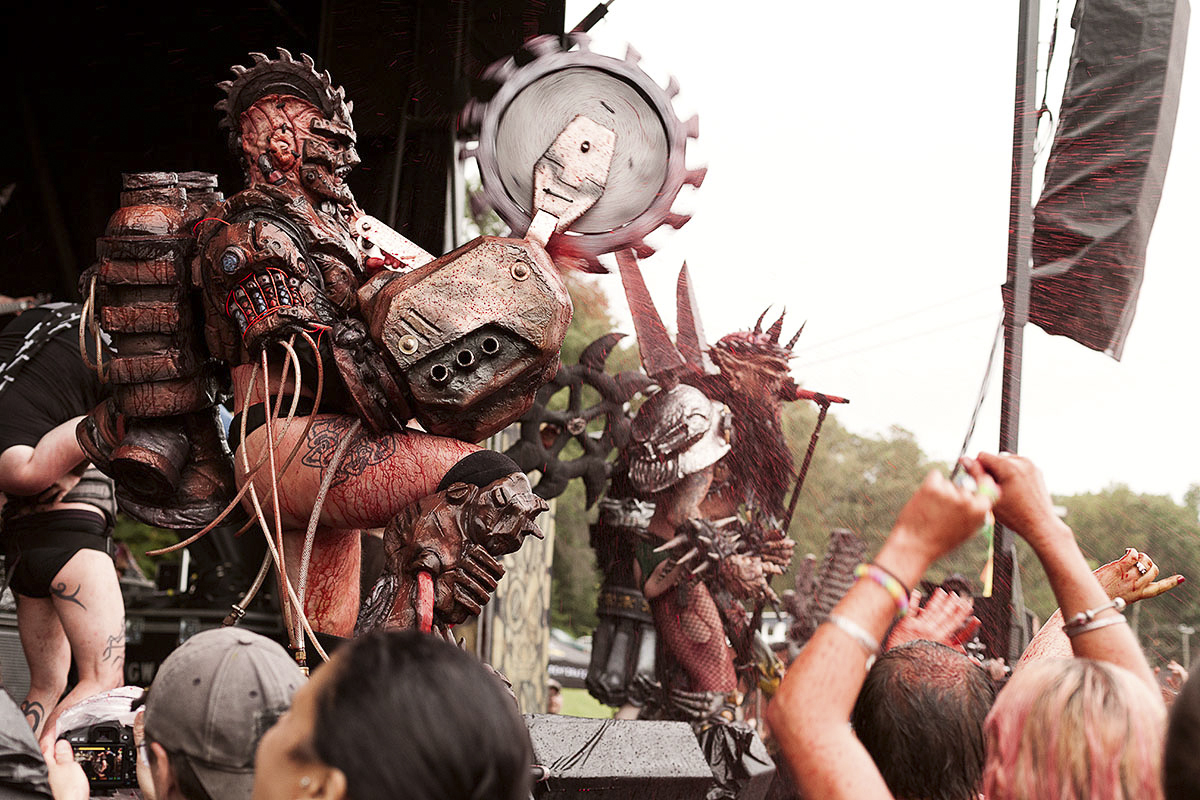




 Photo by
Photo by  Photo by
Photo by  Photo by
Photo by  Photo by
Photo by 
 OFF Festival crowd
OFF Festival crowd Hokei
Hokei Teenagers
Teenagers Teenagers; photo by Jenn Pelly
Teenagers; photo by Jenn Pelly  Furia
Furia Zbigniew Wodecki
Zbigniew Wodecki Semantik Punk
Semantik Punk Super Girl & Romantic Boys
Super Girl & Romantic Boys Piotr Kurek
Piotr Kurek







 The Jungle Book OST
The Jungle Book OST
 Edison Lighthouse: "Love Grows (Where My Rosemary Goes)"
Edison Lighthouse: "Love Grows (Where My Rosemary Goes)"


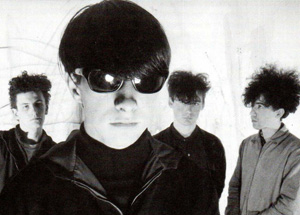



 Primal Scream: Give Out But Don't Give Up
Primal Scream: Give Out But Don't Give Up








 Darkside
Darkside




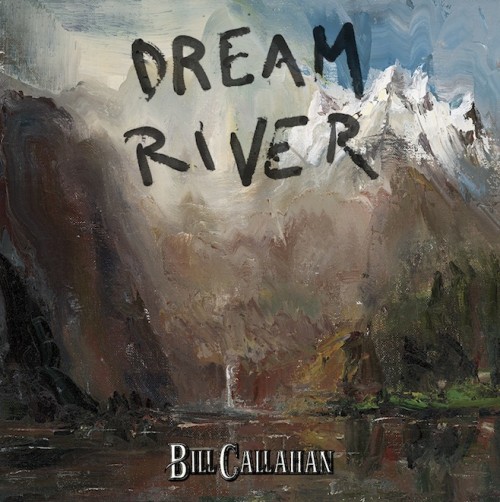
 Carcass
Carcass











 Tim Hecker
Tim Hecker



 Yamantaka // Sonic Titan
Yamantaka // Sonic Titan




































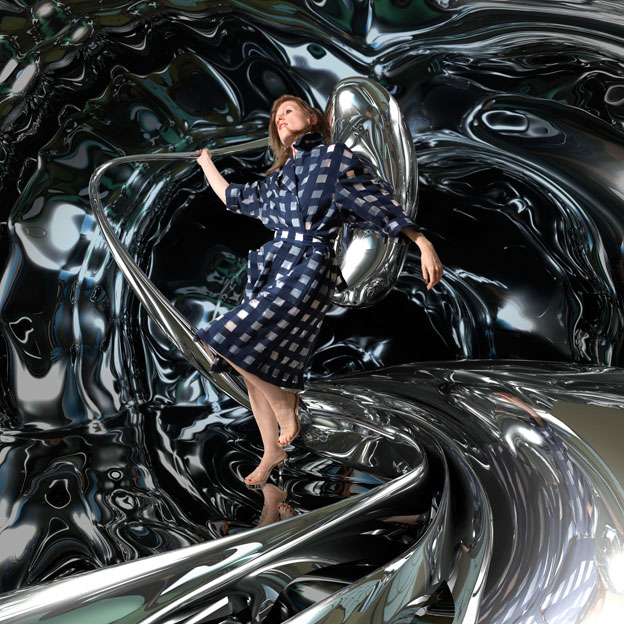

 Dream Collaboration
Dream Collaboration









